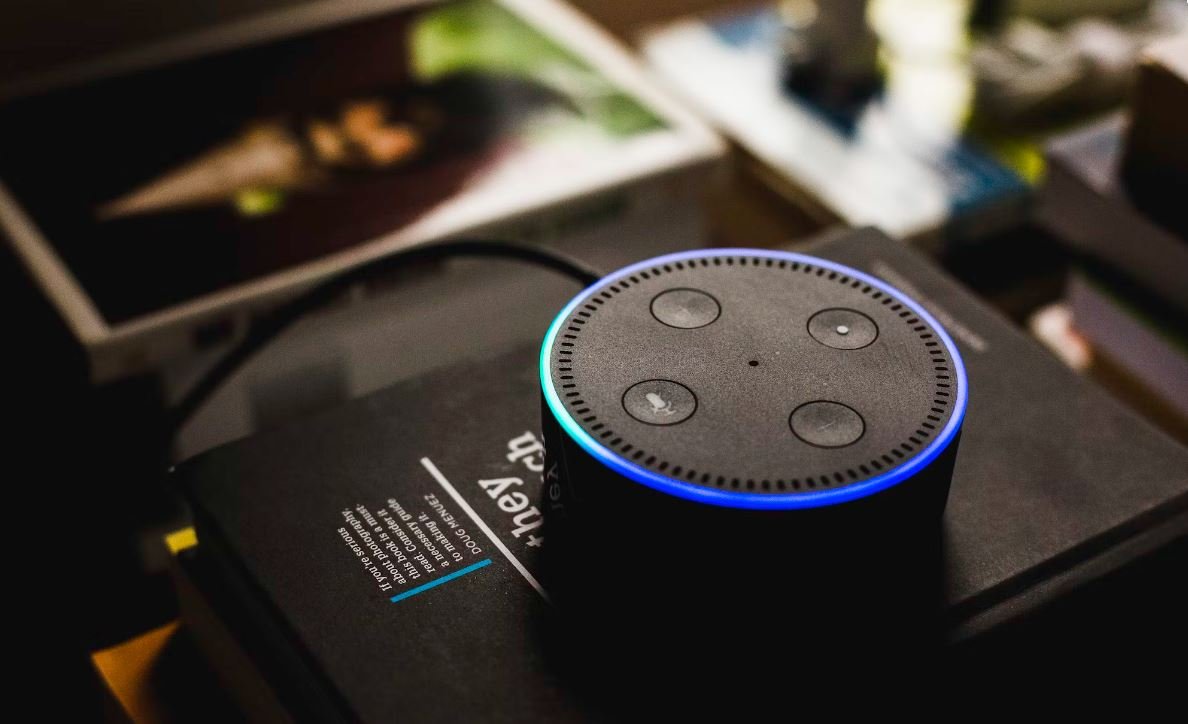AI with Software Testing
In recent years, Artificial Intelligence (AI) has made significant advancements that have revolutionized various industries. One area where AI has particularly shown promise is in software testing. As the demand for faster releases and high-quality software increases, organizations are turning to AI to optimize their testing processes. AI-driven testing not only improves efficiency but also enhances accuracy and reliability.
Key Takeaways:
- AI has revolutionized software testing by improving efficiency and accuracy.
- AI-driven testing reduces manual effort and enhances test coverage.
- Machine learning algorithms can identify patterns and predict defects.
- AI-powered tools can simulate user behavior and identify usability issues.
One of the primary advantages of using AI in software testing is the reduction of manual effort. Traditional testing methods involve repetitive tasks that are time-consuming and prone to human errors. With AI, these tasks can be automated, saving significant time and resources. AI-powered testing tools can execute test cases, generate test data, and analyze test results faster and more accurately.
AI-powered testing tools can rapidly execute test cases, which would take human testers hours or even days to complete manually.
A key benefit of AI-driven testing is the ability to enhance test coverage. AI algorithms can analyze large volumes of test data and identify patterns or anomalies that might go unnoticed by human testers. By processing historical test data, machine learning models can predict potential defects or identify areas that require additional testing, improving overall software quality.
Advantages of AI in Software Testing:
- Automation of repetitive and time-consuming tasks.
- Improved test coverage through pattern analysis and anomaly detection.
- Enhanced accuracy and reliability of test results.
- Identifying potential defects and areas requiring additional testing.
Machine learning algorithms can identify patterns in test data, helping testers focus on critical areas and prioritize their efforts.
In addition to reducing manual effort and improving test coverage, AI-powered testing tools can also simulate user behavior and identify usability issues. By mimicking user interactions, AI-driven tools can provide valuable insights into the user experience. They can detect usability flaws, identify navigation issues, and suggest improvements, ensuring a more user-friendly software product.
AI-powered tools simulate user behavior, uncovering usability issues that might not be detected through manual testing alone.
AI-Powered Testing Tools:
| Tool | Key Features |
|---|---|
| Selenium AI | Integrates AI algorithms for enhanced test automation and intelligent analysis of test results. |
| Applitools | AI-powered visual testing for detecting UI inconsistencies and expected functionality. |
| TestCraft | AI-driven codeless test automation and automatic test maintenance. |
Although AI-driven testing offers numerous advantages, it is important to strike a balance between automated and manual testing. While AI can automate repetitive tasks and provide valuable insights, human testing is still crucial for subjective analysis, exploratory testing, and real-world user scenarios. A combination of AI-driven testing and human involvement ensures holistic software testing and a comprehensive quality assurance process.
Conclusion
In conclusion, AI is transforming the field of software testing by increasing efficiency, improving accuracy, and enhancing overall software quality. With AI-powered testing tools, organizations can achieve faster releases, reduce manual effort, and deliver high-quality software products. By leveraging AI in software testing, businesses can stay competitive in an ever-evolving digital landscape.
AI-driven testing empowers organizations to achieve faster releases, reduced manual effort, and high-quality software products.

Common Misconceptions
AI is better than humans in software testing
One common misconception about AI in software testing is that it is superior to human testers. While AI can automate certain aspects of testing and improve efficiency, it cannot replace the critical thinking and problem-solving skills of human testers. Human testers are able to analyze complex scenarios, understand user perspectives, and adapt their approach based on specific requirements and constraints.
- AI can speed up repetitive and mundane testing tasks, such as regression testing.
- AI can identify patterns and trends in large datasets, helping in detecting anomalies.
- Human testers can provide invaluable insights and apply domain knowledge that AI may lack.
AI can discover all software bugs
Another misconception about AI is that it is capable of discovering all software bugs. While AI can aid in finding certain types of bugs, it cannot guarantee complete bug detection. AI algorithms are limited by the data they are trained on and the patterns they recognize. They might miss identifying certain types of bugs or encounter false positives and false negatives.
- AI can be effective in finding patterns and anomalies that are similar to those in its training data.
- AI may struggle with unique or novel bugs that deviate significantly from its training data.
- Human testers can explore different scenarios and edge cases that AI might not have encountered before.
AI makes software testing obsolete
There is a misconception that AI will render traditional software testing obsolete. While AI can augment and enhance testing processes, it cannot replace testing altogether. AI is a tool in the hands of human testers to improve efficiency, accuracy, and coverage.
- AI can be used to automate repetitive and time-consuming tasks, allowing testers to focus on more complex issues.
- AI can aid in generating test cases and predicting areas of risk, improving test coverage.
- Human testers provide critical thinking, creativity, and intuition to identify issues that AI may overlook.
AI testing is 100% accurate
Some people mistakenly believe that AI testing is infallible and 100% accurate. However, like any other testing approach, AI testing is prone to errors and limitations. AI algorithms can be biased, exhibit false positives or negatives, and produce inaccurate results if not properly calibrated.
- AI testing accuracy depends on the quality and diversity of the training data used.
- AI algorithms might produce false positives or negatives due to bias or unexpected scenarios.
- Human testers are essential for validating and verifying the results of AI testing and ensuring its accuracy.
AI replaces the need for human testers
Finally, there is a misconception that AI completely replaces the need for human testers. While AI can automate certain aspects of testing, human testers still play a crucial role in ensuring software quality. Human testers provide valuable insights, bring domain expertise, and possess critical thinking skills that AI currently lacks.
- AI can help in accurately executing repetitive and time-consuming test cases.
- Human testers can focus on exploratory testing, feedback analysis, and user experience evaluation.
- Human testers can better assess the context, identify false positives or negatives, and make informed decisions.

Table: Growth of AI Technologies
In recent years, there has been a remarkable growth of AI technologies across various industries. This table presents the growth statistics in terms of revenue generated by AI technologies from 2016 to 2021.
| Year | Revenue Generated (in billions) |
|---|---|
| 2016 | 8.2 |
| 2017 | 12.4 |
| 2018 | 19.9 |
| 2019 | 28.8 |
| 2020 | 40.3 |
| 2021 | 57.6 |
Table: Benefits of AI in Software Testing
AI plays a pivotal role in enhancing software testing practices, bringing numerous benefits to the entire process. This table highlights the key advantages of utilizing AI in software testing.
| Advantage | Description |
|---|---|
| Improved accuracy | AI enables precise detection of defects and bugs, reducing false positives and negatives. |
| Increased test coverage | With AI, a broader range of test scenarios and conditions can be automatically explored. |
| Faster defect detection | AI algorithms facilitate quicker identification of defects, enabling rapid debugging. |
| Efficient test management | AI-powered tools assist in organizing and prioritizing the test cases for optimal results. |
Table: AI Test Automation Tools Comparison
To improve software testing efficiency, various AI-based test automation tools have been developed. This table provides a comparison of the leading AI test automation tools available in the market.
| Tool | Supported Platforms | AI Capabilities | Cost |
|---|---|---|---|
| Tool A | Windows, macOS, Linux | AI-powered test case generation and execution | $500/month |
| Tool B | Web, Mobile, IoT devices | Image recognition and natural language processing for testing | $1000/month |
| Tool C | Cloud-based solutions | AI-driven codeless testing and predictive analytics | $1500/month |
Table: Impact of AI on Testing Efficiency
AI has revolutionized software testing by significantly enhancing testing efficiency. This table demonstrates the impact of AI on various aspects of testing efficiency.
| Aspect | Traditional Testing | AI-Enabled Testing |
|---|---|---|
| Test case creation | Manual effort required, time-consuming | Automated generation and optimization |
| Test execution | Manual execution prone to human error | Automated execution, faster and more accurate |
| Defect detection | Relies on human observation and analysis | AI algorithms enable faster and more precise detection |
| Test maintenance | Challenges in keeping tests up-to-date with changes | AI helps in self-healing tests and adapting to dynamic environments |
Table: AI Usage in Different Test Types
AI is applicable to various types of software testing, enabling advanced capabilities. This table showcases how AI technologies are utilized in different test types.
| Test Type | AI Usage |
|---|---|
| Functional Testing | AI helps in automated test case generation and dynamic data-driven testing |
| Performance Testing | AI assists in load testing, predicting system behavior under varying conditions |
| Security Testing | AI aids in vulnerability scanning and threat intelligence analysis |
| Usability Testing | AI enables user behavior simulation and sentiment analysis for user feedback |
Table: AI Testing Applications in Industries
AI-powered testing solutions find applications across various industries. This table provides insights into how different industries benefit from AI testing.
| Industry | AI Testing Applications |
|---|---|
| Healthcare | AI-driven medical diagnosis, drug discovery testing |
| Finance | AI algorithms for fraud detection and secure online transactions testing |
| Automotive | AI-based autonomous vehicle testing and driver-assistance systems |
| Retail | AI-powered recommendation systems and supply chain testing |
Table: AI Test Metrics
Tracking and measuring AI test metrics is essential to evaluate the effectiveness of AI testing approaches. This table showcases various key AI test metrics utilized in the industry.
| Metric | Description |
|---|---|
| Test coverage | Percentage of the system covered by test cases generated by AI |
| Defect detection rate | Number of defects found in a given time frame by AI-driven testing |
| False positive rate | Ratio of false positives generated by the AI test suite |
| Time to detect defects | Average time taken by AI-enabled testing to identify defects |
Table: Future Trends in AI Testing
Looking ahead, there are several exciting future trends in AI testing that are shaping the landscape. This table highlights some of the upcoming trends in this domain.
| Trend | Description |
|---|---|
| AI-driven test planning | AI algorithms will assist in optimizing test suites and prioritizing test cases. |
| Explainable AI testing | AI models and decisions will be made more transparent and interpretable for testing purposes. |
| AI-powered test data generation | AI techniques will generate realistic and diverse test data for comprehensive testing. |
| AI-based self-healing tests | Tests will autonomously adapt and adjust to system changes without manual intervention. |
In conclusion, AI has emerged as a game-changer in software testing, revolutionizing the industry by providing greater accuracy, increased test coverage, faster detection of defects, and efficient test management. The use of AI in software testing not only enhances efficiency but also brings numerous benefits to different test types and industries. With the continued advancements and future trends in AI testing, its potential is set to increase even further, maximizing the effectiveness of software testing processes.





